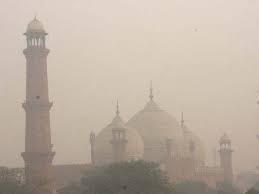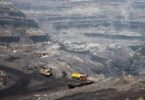Ghazala Anbreen
Key findings from the 2023 World Air Quality Report reveal that Pakistan is the second most polluted country of the world. Pakistan is a country blessed with Glaciers, plains fertile lands, minerals and all the seasons coupled with an excellent geo strategic position.
However, there are serious issues of environment pollution there. Every year 49.6 million tons of solid waste is generated by Pakistan but waste management departments dispose off from 50 to 80 percent of the solid waste. The question arises how can we use garbage to our benefit? One case study can be that of Istanbul.
The waste in this city is recycled to produce electricity. This model can be a good example to study how the government managed this waste to its advantage. In Istanbul, a city with a population of 16 million people, a facility is designed to create electricity from waste which converts 3000 tons of garbage a day into electricity.
Boilers burn the garbage at 1832 degrees fahrenheit (1000 degree centigrade). The kinetic energy thus created produces electricity to the extent of creating 85 megawatts in one day equivalent to the amount of daily energy 1.4 million people need. Even the ash is used in the cement making. The hazard of environmental pollution is minimal as they control the emissions as well.
Air Pollution in Lahore: In 2022, Pakistan was the third most polluted country in the world. Lahore had the worst air pollution in the world in 2022. Poor air quality was there year round and as described by a social worker (Abid Omer) , even the River Ravi and blue skies could not be seen. Lahore had a concentration of 97.4 micro grams of PM 2.5 particles per cubic meter of air. In 2021 it was 86.5.
In order to combat the rising air pollution in Lahore Clean Air Plan was developed by the Ministry of Environment Pakistan and supported by Climate and Clean Air Coalition, the Stockholm Environment Institute and Clean Air Asia in 2022. Its basic purpose was to identify the causes responsible for pollution and set plans to eradicate air pollution by quantifying black carbon and other air pollutants at national and provincial levels.
Importing of waste by Pakistan by the developed countries: In 2022 a Senate Standing Committee on Climate Change met for a briefing on the National Hazardous Waste Management Policy 2022. This policy aimed to prevent the deadly waste from entering in Pakistan for safeguarding health and environment.
The parliamentary committee took notice of the reports that a large amount (80,000 ton waste was imported by Pakistan annually) of which many countries were sending their garbage to Pakistan while the fact remains that by that year Pakistan itself generated 30 million tons of solid waste per anum.
Why these countries are sending their garbage in Pakistan and why Pakistan is accepting it? The countries who send their waste to Pakistan assert that this is an aid. Mostly this is plastic or some metals which can be recycled. The premise is that in this way Pakistan will not have to buy much plastic and its import bill would be low. In fact, due to this import of garbage Pakistan had to face many problems. As for instance, clinical waste brings much bacteria along with it and can create much diseases.
According to a DW report in 2019 in Pakistan the garbage which came from America, 624 containers were found contaminated having poisonous material.
Basel Convention on the Control of Transboundary Movements of Hazardous Wastes and their Disposal in Switzerland entered into force on 1992. In it a decision was made relating to better waste disposal practices and sound management of hazardous wastes thereby promoting responsible handling and preventing environmental harm. Pakistan is a party to this Convention. Emphasis should be on adopting environmentally sound practices with the minimum risk to human health and environment.
Due to the mismanagement of safe disposal of solid waste the environmental problems exacerbate.
Current situation: Air pollution has worsened in Pakistan. Lahore has repeatedly been ranked as the most polluted city in the world. Swiss monitoring platform, IQAir, a Swiss Air Technology Company reported that air quality over 300 is considered hazaradous and in Lahore it was 348 in 2021.
Factors responsible: Factors responsible for this include vehicular emissions, industrial residues, seasonal practice of burning crop stubble, smoke from brick kilns and dust from construction sites especially from October to February, increase in housing societies in the declared green areas etc. Also low quality petrol and harvest fires are responsible for this alarming situation.
Besides burning of solid waste and agricultural residues in the open. steel mills, sugar mills, cement industries, fertilizer plants and power plants using furnace oil having high quantity of sulphur content also create air pollution. In this way quantity of methane gas gets higher in the air and affects the lives of the people living in that area. Methane gas is five times poisonous than Carbon dioxide produced in this way. This contaminated air causes respiratory diseases and eye infections.
At this point, it would be important to note that Pakistan has signed the Global Methane Pledge which aims to reduce the methane level by 30 percent over the next two decades. Similarly there is a lack of proper monitoring of vehicular fitness and emissions testing.
Impacts: Due to all these factors respiratory diseases are on the rise resulting in shorter life expectancy and cardiac diseases. Chronic obstructive pulmonary diseases make the life span reduced.
What is required: Regulations are needed as air cleaning filters for factories, limits of carbon emissions for cars, use of hybrid technology and planting more trees in the cities. Enhancing pubic transportation system and reducing the number of private vehicles, electric transport and restricting movement of vehicles in urban areas can be some of the solutions. Smoke emitting transport should be fined.
Solutions: Pakistan’s NCAP (National Clean Air Policy) was approved in March 2023 and its transition to Euro 5 emission standards can yield good results provided Pakistan observes safety protocols for the dumping of hazardous waste, promote better manure storage and management in the livestock industry, regularly monitor emissions from factories and adopt clean technology.
Apart from that planting more trees, discouraging the burning of trash, encouraging proper disposal of solid waste, installing more of the air quality monitoring stations, investing more in renewable energy sources, reducing the burning of fossil fuels can also be effective solutions. Involvement of NGOs in pollution control efforts and community mobilization through awareness at mass media can be helpful as well. Composting can be a method of processing and recycling of the garbage and sewage in one operation. It is a biological process allowing organic portion of refuse to decompose under carefully controlled situations. Enforcing existing environmental laws would be essential for protecting public health through sustainable collective efforts.







